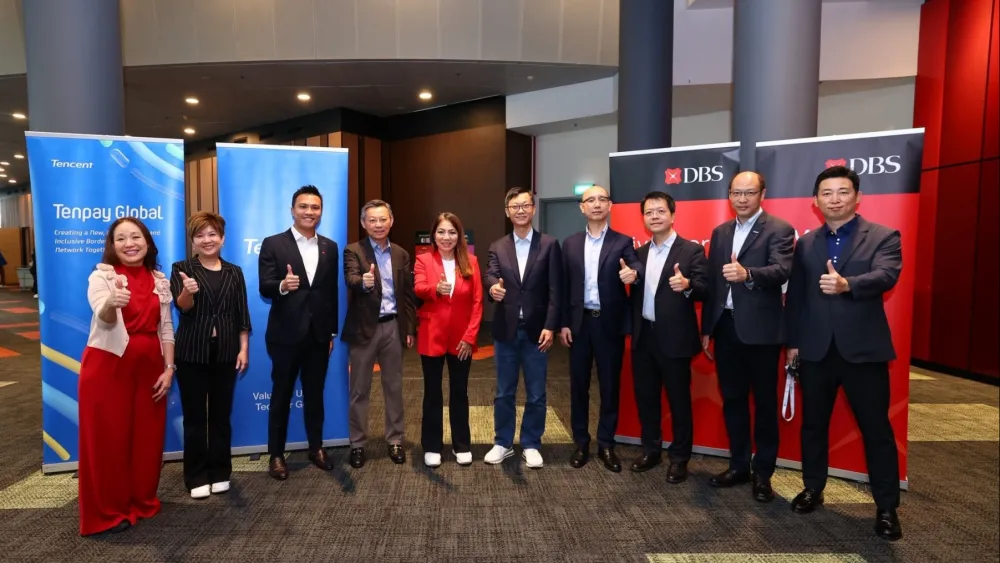Foreign-Invested Partnerships: New vehicles for private equity investments in the PRC
By Jeffrey Chen and Laetitia MerguiSeveral foreign private equity investors set up their investment vehicles in China in the form of "foreign-invested partnerships".
This is following the implementation in 2010 of the Administrative Measures for the Establishment of Partnership by Foreign Enterprises and Individuals (the “FIP Measures”).
Before these Measures came into effect, foreign private equity investors normally invested in China through the vehicle of a “foreign-invested venture capital investment enterprise” (“FIVCIE”) which can be organized as a Sino-foreign joint venture (including an equity joint venture (“EJVs”) and a co-operative joint venture (“CJVs”) or a wholly foreign-owned enterprise (“WFOE”). There are certain advantages in forming FIVCIEs as investment vehicles, such as: having the ability to convert foreign currency capital funds into Renminbi for equity investments in other PRC entities (which is not allowed for other FIEs), the flexibility in making capital contributions (unlike other FIEs whose capital must be contributed within 2 years of incorporation, capitals of non-legal-person FIVCIEs can be contributed within 5 years based on actual needs). However, the FIVCIE model also has many drawbacks from an investor’s perspective:
- First, establishing an FIVCIE is subject to approvals by the PRC Ministry of Commerce (“MOFCOM”) and the Ministry of Science and Technology (“MOST”). Any subsequent capital increase or decrease of the FIVCIE would also need to be approved by MOFCOM, and such approval process can be time-consuming and may cause difficulties in capital injections and exits;
- Second, FIVCIEs are only allowed to invest in high or new technology businesses, which considerably reduces the range of investment targets open to foreign investors;
- Further, a FIVCIE must have a qualified “mandatory investor” who must invest in at least 30% of the equity of a FIVCIE having legal personality status or at least 1% of the equity of a FIVCIE not having legal personality, while assuming joint and several liabilities of the FIVCIE. Such onerous investment and liability requirements have made the form of FIVCIE undesirable for many investors;
- In addition, FIVCIEs are required to set aside a statutory reserve fund and other funds, which may reduce the investors’ returns;
- Finally, in the case of FIVCIEs having legal personality status, they are also subject to corporate income taxes.
Compared to the FIVCIE system, the new FIP investment vehicle is more flexible and appears to be more attractive to foreign private equity investors wishing to invest in the PRC.
Formation of a FIP
Under the FIP Measures and the accompanying FIP registration rules, a FIP can be formed by two or more foreign investors (including enterprises and individuals) or by foreign investors together with one or more Chinese institutional or individual investors. In addition, pursuant to PRC Partnership Law which also applies to FIPs, foreign investors can also join an existing domestic partnership by making new contributions or acquiring partnership interests in such domestic partnerships.
Unlike other traditional foreign invested enterprises (“FIE”), a FIP can be formed by direct registration with the provincial-level SAIC at the place where the FIP is to be located, without approval by MOFCOM or its local counterparts. If a private equity fund is organized as a FIP, its establishment would also escape the MOST approval procedure required for FIVCIEs, thus allowing the investors to deploy capital more quickly, based on actual needs.
However, although MOFCOM approval is not required, the relevant SAIC must be satisfied that the proposed formation of a FIP is in line with China’s foreign investment industry policies before it registers the FIP. In addition, if a proposed investment by the FIP is subject to government approvals under a law, administrative regulations or State Council provisions, such approvals must be obtained prior to applying for registration of the FIP.
The local SAIC office will register the FIP and issue a business license or notify its rejection within 20 days of receipt of a complete set of registration documents. A FIP may be formed as a general partnership or a limited partnership.
Business Scope
Unlike FIVCIEs, the investment targets of FIPs are not limited to high or new technology industries. Under the FIP Measures, FIPs can invest in any industry except (i) those under the “prohibited” category of the Catalogue for Guiding Foreign Investment Industries (the “Catalogue”) and (ii) any industry in the Catalogue attached with shareholding restrictions on foreign investors, even if the industry falls under the “encouraged” category of the Catalogue. For example, a FIP cannot engage in the construction or operation of urban subways, which under the Catalogue is encouraged for foreign investments but for which foreign investors can only hold minority interests.
Capital Contribution
In addition, there is no minimum registered capital requirement for FIPs, and the partners may freely decide the amount of capital and its contribution schedules. Further, partners in a FIP may make capital contributions in cash or in kind (in the form of tangible assets, land use rights, intellectual property rights, services or other property rights), unlike investors in FIVCIEs who can only make capital contribution in cash. Also, unlike FIEs whose non-cash contribution is limited to 70% of their registered capital, there is no ceiling on the percentage of non-cash contributions by FIP partners. The value of the assets, rights or services to be contributed in-kind can be determined either by agreement between the partners or the assessment of a qualified appraiser in China.
Management
Subject to the partnership agreement, the management of the affairs of FIPs can be delegated to selected general partners (limited partners are not allowed to manage the affairs of the partnership) or sub-contracted to a third party. The ability to sub-contract is of particular interest to PE investors as typically PE funds are managed by management companies.
Tax Treatment
An FIP is not subject to enterprise income tax, and each partner of the FIP is an independent taxpayer enjoying pass-through tax treatment. In the case of foreign institutional partners, the profits from the FIP are normally subject to a 25% enterprise income tax. However, if the management of a FIP is entirely subcontracted to a management entity (as is the case in most if not all PE funds) and the foreign partner is deemed to be a foreign entity without a permanent establishment in the PRC, the profits of the foreign partner from the FIP will be subject to withholding tax at the standard rate of 10%, which, depending on the nature of the profit (e.g. dividend, capital gain, etc.), may be further reduced by applicable tax treaties.
Restrictions and Uncertainties
The FIP structure also brings with it certain restrictions and uncertainties that are expected to be addressed by Chinese authorities.
First and foremost, pursuant to Circular 142 of the State Administration for Foreign Exchange (“SAFE”) promulgated in 2008, FIEs cannot convert foreign-currency capital funds into Renminbi for the purpose of equity investments in the PRC. While not expressly spelled out in the SAFE circular, it is commonly understood that FIPs are caught by such restrictions and, consequently, foreign exchange funds contributed by foreign partners to FIPs cannot be converted into Renminbi for investing in other PRC enterprises. Such a restriction may have become a major hurdle to foreign investors seeking to establish investment funds in China as FIPs.
Having said that, it is possible that such restrictions may be relaxed to some extent fairly quickly. According to the press, SAFE will give quotas allowing certain qualified FIPs registered in Beijing and Shanghai to convert foreign exchange capital funds into Renminbi for equity investments within the range of the quota. The details of such a quota-based scheme are expected to be released in early 2011.
In addition, the FIP Rules leave the door open for future legislation to deal specifically with FIPs whose “primary purpose” is investment. It is provided that if the Chinese government promulgates regulation regarding such investment FIPs in the future, such regulations shall prevail. The FIP rules are silent on the meaning of “primary purpose”, and it remains to be seen if any scheme akin to the approval requirements now existing for domestic investments by FIEs will be legislated for FIPs (and especially RMB funds organized in the form of FIPs such as the one between Carlyle and Fosun, whose “primary purpose” is presumably making equity investments).
Further, it is unclear whether FIPs are allowed to borrow funds from foreign entities (including their foreign partners) and what conditions or restrictions will be imposed if such borrowings are permitted. As mentioned above, FIVCIEs are prohibited from borrowing funds for making investments. Since non-foreign invested partnerships are allowed to borrow funds from PRC commercial banks and so far there is no similar restrictions existing under PRC law for FIPs, it would be reasonable to assume that FIPs may borrow funds from PRC commercial banks for investment purpose. However, any loans from PRC commercial banks for such purposes would probably be considered as merger and acquisition loans regulated under the Guidelines on the Risk Management of Merger and Acquisition Loan of Commercial Banks, which requires that there must be a relatively high industrial or strategic relevance between the acquirer and the target enterprise, making it more difficult for investors to gain access to leverage.
Shanghai Pilot Projects
To attract more foreign private equity investments to Shanghai, the Shanghai Municipal Government issued the Measures for the Pilot Implementation of Foreign-Invested Equity Investment Enterprises in Shanghai (the “Pilot Measures”) in December 2010, which applies to foreign-invested equity investment enterprises (“FIEIE”) and foreign-invested equity investment management enterprises (“FIEIME”) to be established in Shanghai. The Pilot Measures allows FIEIEs to be organized as FIPs and FIEIMEs as FIPs or companies and imposes qualification requirements for foreign investors seeking to establish FIEIE or FIEIMEs in Shanghai (“Qualified Investor”). Pursuant to the Pilot Measures:
- the capital of FIEIEs must be at least US$15 million and may only be contributed in cash, and each limited partner must contribute at least US$1 million. In the case of FIEIMEs, their minimum capital is US$2 million which should also be contributed in cash;
- FIEIEs should only make investments with self-owned funds;
- Qualified Investors should be foreign sovereign funds, pension funds, charity funds, endowment funds, funds of funds, insurance companies, banks, securities firms or other institutional investors recognized by a joint committee of Shanghai Municipality that owns assets having a value of not less than US$500 million or manages portfolios having a total value of not less than US$1 billion in the previous fiscal year;
- A FIEIME (whether organized as a FIP or a company) may convert its foreign currency capital funds into Renminbi for investing in the FIEIEs it promotes, for a total amount of up to 5% of the total capitals to be raised by the invested FIEIEs.
In addition, FIEIEs are prohibited from:
- investing in sectors that are prohibited for foreign investments;
- trading stocks or corporate bonds on secondary market (except in the case where FIEIE-invested companies become listed);
- investing in futures or other financial derivatives;
- directly or indirectly investing in real properties other than for self-use;
- providing loans or security to others.
In conclusion, FIP offers a new way for foreign investors to enter the Chinese private equity market. It is likely that the FIP model will be adopted more frequently as it offers greater flexibilities than traditional investment vehicles. However, although some local incentive rules such as the Pilot Measures have offered a clear guideline for establishing and operating investment funds, there remain several impediments and uncertainties in the national legislation that hampers international private equity investors and managers. China has been in the spotlight for private equity investments for more than a decade. To maintain this momentum, such impediments and restrictions must be addressed as soon as possible.




















 Advertise
Advertise











